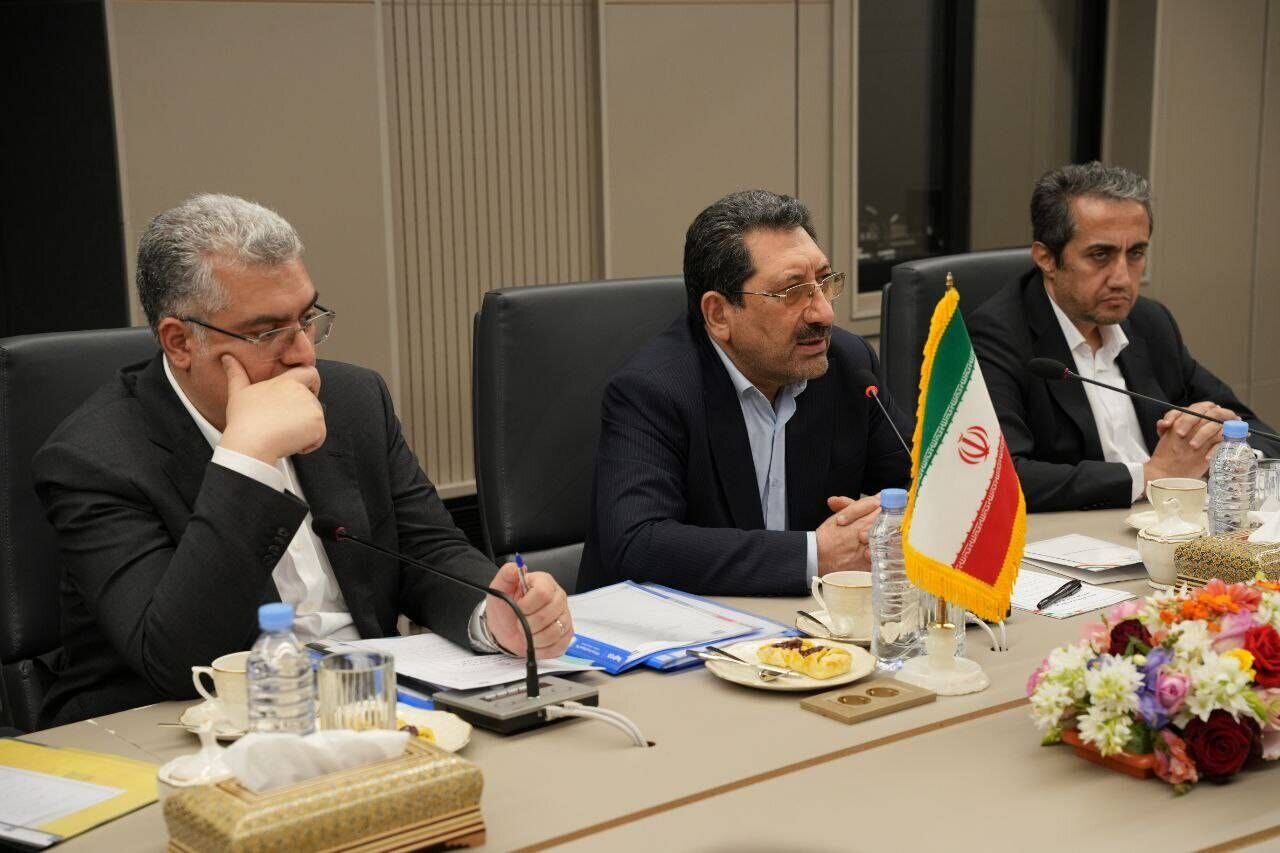Iran, Tajikistan hold industry talks on sidelines of Expo 2025

TEHRAN — Iran’s Minister of Industry, Mining and Trade Mohammad Atabak met with Tajikistan’s minister of industry and new technologies on the sidelines of Expo 2025 to discuss expanding industrial cooperation between the two countries.
According to a statement from Iran’s Ministry of Industry, Atabak reaffirmed Iran’s readiness to supply Tajikistan with billets, rebar, and steel products as previously discussed.
He added that Iran is fully prepared to meet Tajikistan’s needs in the chemical and food industries, offering to establish a mutually agreed mechanism for cooperation.
Atabak emphasized that Tajikistan’s requests—whether for factory construction or product supply—can be carried out through bilateral agreements. He noted that plans for the construction and equipping of pharmaceutical manufacturing plants will proceed once the two countries harmonize their standards.
The minister also said that Tajikistan’s mining development program, including the creation of mining infrastructure and downstream industries, is entering preliminary stages of talks with Iran’s state-owned mining holding company, IMIDRO.
Iranian President Masoud Pezeshkian concluded his two-day official visit to Tajikistan in mid-January, marking a significant milestone in bilateral relations with the signing of 23 agreements across various fields.
The agreements, aimed at strengthening diplomatic ties, economic cooperation, and cultural exchanges, highlight the commitment of both nations to overcoming obstacles and expanding collaboration. During the visit, Pezeshkian emphasized the potential for trade to exceed $500 million and announced plans for a joint economic commission meeting in the near future.
Key moments of the visit included bilateral talks with Tajik President Emomali Rahmon, focusing on fast-tracking joint projects and removing trade barriers. The presidents hailed the agreements as a foundation for further cooperation in science, education, transportation, and agriculture.
Pezeshkian addressed Tajik academic circles, stressing Iran's commitment to global health and rejecting violence and conflict. The visit also featured discussions with top Tajik officials, including the prime minister and parliamentary leaders, to facilitate trade agreements, including a preferential trade pact.
The visit culminated in a shared vision for deepened partnerships, with both countries expressing readiness to remove remaining barriers to trade and investment.
Also, a high-ranking Iranian trade delegation, comprising members of Iran’s Chamber of Commerce, Industries, Mines and Agriculture (ICCIMA) and led by Chamber Head Samad Hassanzadeh, departed Tehran for Dushanbe, the capital of Tajikistan, on January 14.
The delegation was accompanied by Iran’s Minister of Cultural Heritage, Tourism, and Handicrafts, Seyyed Reza Salehi Amiri, underscoring the multi-faceted nature of the visit, the ICCIMA portal reported.
Upon arrival in Dushanbe, Iranian and Tajik economic leaders convened for a joint forum aimed at enhancing bilateral trade relations. In this gathering, Hassanzadeh emphasized the extensive cultural and historical ties between Iran and Tajikistan as a foundation for deepening economic cooperation. He highlighted key sectors such as petrochemicals, oil and gas, medical equipment, and tourism as areas ripe for collaboration.
“Beyond economic discussions, we can leverage our shared heritage in literature, science, and the arts to expand mutual ties. Tajikistan offers a strategic platform for Iranian investors and businesses seeking to access Central Asian and Eurasian markets,” Hassanzadeh stated.
The forum witnessed the signing of several memoranda of understanding between Iranian and Tajik companies, paving the way for increased joint ventures. Attendees also participated in one-on-one discussions to explore potential partnerships. Hassanzadeh noted that Iranian businesses have the expertise to contribute to Tajikistan’s industrial development, including projects in steel production, refineries, and advanced technologies.
Highlighting Iran's capabilities, the ICCIMA head remarked, “We possess competitive pricing and innovative solutions, making us a strong partner for Tajikistan in sectors like engineering services and exports of building materials, agricultural products, and pharmaceuticals.”
Ahead of the trip, Hassanzadeh described Tajikistan as a strategic destination for Iranian investors. “The stable political and social relations between our nations, combined with the trust shared by our presidents, provide a solid framework for expanding bilateral trade,” he told Iranian media. He highlighted Tajikistan’s reliance on Iranian expertise and competitive exports as a key opportunity for growth in sectors such as tourism, agriculture, and industrial development.
With the Iranian delegation’s visit marking a new chapter in economic diplomacy, both nations have reaffirmed their commitment to leveraging cultural affinities for stronger economic ties. Tajikistan remains a vital partner in Iran’s efforts to enhance its presence in Central Asia and beyond.
EF/MA
Photo: Iranian Industry Minister Mohammad Atabak (C)
Leave a Comment